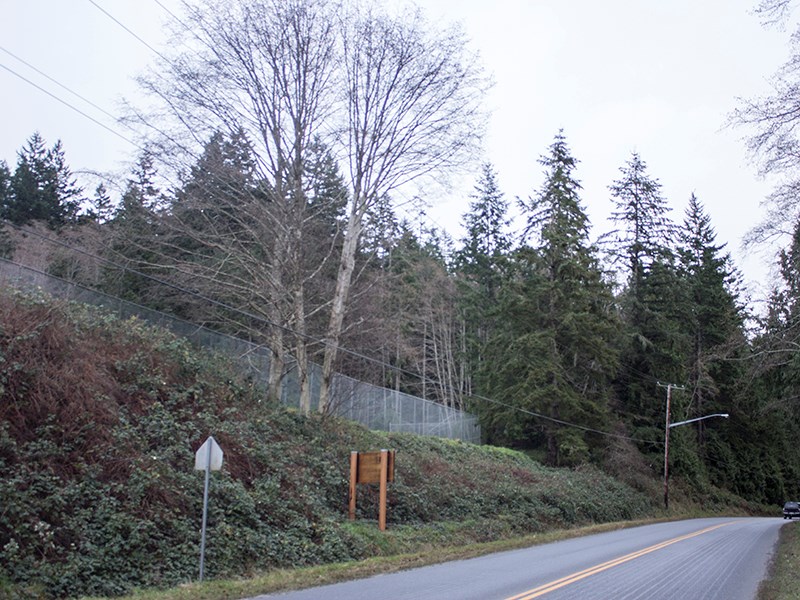City of Powell River council is deliberating whether to make changes to its sustainable official community plan and zoning to allow the development of Sino Bright School’s campus in Townsite.
Council held a public hearing on Thursday, April 7, to solicit residents’ feedback on the changes.
While the issue of the PRSC Limited Partnership land, owned by the city and Tla’amin Nation, has been contentious for Powell River, only seven members of the public attended the meeting, and four of them stood to speak in favour of the bylaw amendments.
Bylaw 2436 proposes to re-designate a 30-acre parcel of vacant land next Brooks Secondary School from agricultural land reserve to employment centre land. Bylaw 2437 proposes to rezone the subject land from large lot rural to institutional.
Zoning changes, as well as formal support from the city, will be included as part of the application for the BC Agricultural Land Commission (ALC) to consider in regard to excluding the parcel from the provincial reserve.
City council decided on Thursday, April 6, it would hold an information session to give the public opportunities to comment on ALC exclusion.
At the meeting, mayor Dave Formosa told council he has learned that while the school would be owned privately by Sino Bright, School District 47 would be contracted to operate the school, which would increase the number of teachers employed by the district.
Comments at the public hearing were generally positive for the development of the campus, though a few letters raised concerns about how interests in the area might be impacted. City clerk Marie Claxton read the written submissions at the hearing.
Powell River resident Margery Duda wrote in to ask council to consider not allowing the development in an effort to save the trees, which she said are an important part of what makes Powell River attractive. She suggested moving the development near Powell River Airport.
George Orchiston, also a resident, sent a letter questioning whether the activity of a private school necessarily fit as institutional zoning.
Western Forest Products, which owns Haul Road, an industrial thoroughfare for off-highway logging trucks transporting logs between Powell Lake and the log sort near Catalyst Paper Corporation’s mill, submitted a letter through its operations manager explaining that the company expects its current use of the road near the potentially rezoned land to be affirmed in the matter.
Sino Bright president Quan Ouyang also submitted a letter, noting the company’s desire to open the Powell River campus, its strong relationship with the school district and Vancouver Island University and its willingness to join the community and partner locally to conduct agriculture “in a way the citizens of Powell River would like.”
Quan also wrote that if the rezoning is not supported then the school would not pursue the development further.
Acknowledging Tla’amin Nation and the history of welcoming immigrants to the upper Sunshine Coast, Eagle Walz, a retired teacher, stood to remind council that during the past 180 years people from all ethnic backgrounds have been welcomed, and the same should be done for the school and its Chinese students.
He noted that Sino Bright, with its potential for 400 students, will help the school district maintain its numbers and help improve education for all students.
Walz said a population increase would also help the town become self-sustaining again.
Resident Patrick Hull told the hearing locating the school next to Brooks is beneficial, even though it requires rezoning agricultural land. “This is absolutely the correct location for this school,” said Hull.
City residents Linda Wegner and Ted Rodonets also stood to address the councillors with support for the rezoning.
Mac Fraser, city chief administrative officer, told the gallery that with the closure of the public hearing council and city staff would not be able to engage in conversations with members of the public on the issue until after delivering its decision on the bylaw amendments at an upcoming council meeting.
Due to this, Fraser was unable to comment further on the matter.



